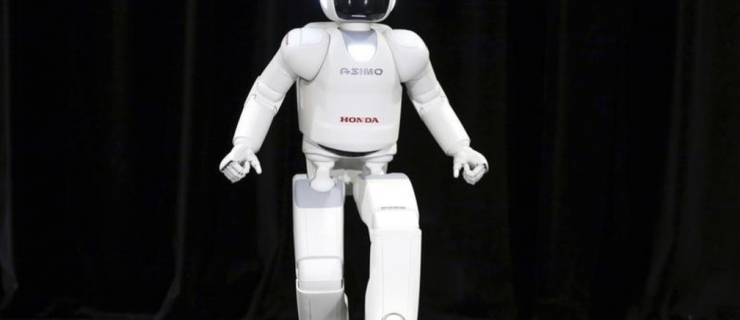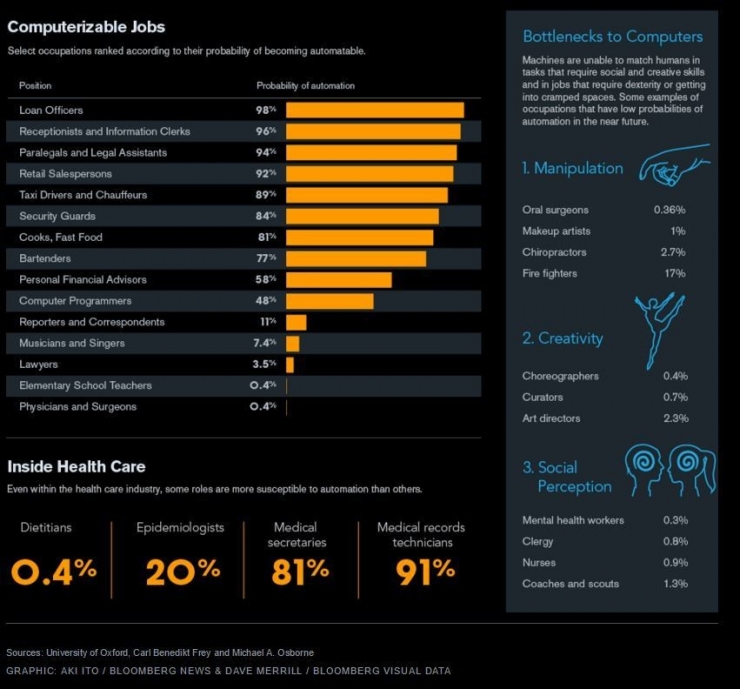In March of this year, robot Spencer passed an internship and officially served as an airport guide at Amsterdam Airport in the Netherlands to provide guidance services for passengers. Spencer has a pair of laser eyes used to scan the surrounding environment, and with the preloaded indoor map to determine the walking route. Spencer also knows how to do humanistic behaviors. For example, when leading a group of people to walk, they turn around to see if they have lost. In the same month, the Hilton Virginia McLay welcomed the hotel concierge Connie. Later, the Ghent Marriott Hotel in Belgium welcomed the robot receptionist Mario, who speaks 19 languages ​​and can imitate Michael Jackson dancing. Although robot attendants are not new, but as more and more robots appear in public places such as hotels and airports, we seem to be able to sniff such signs: Robots have really shaken the service industry. According to a survey by the European Commission, the total market value created by service robots will reach 100 billion euros by 2020. Richard Pemberton, a consultant in regional economics, has a lot of research on service robots. He said: In our opinion, there are two purposes for the development of service robotics technology: one is to improve service quality; the other is to reduce costs by increasing efficiency. The US fast-food chain Zaxby has applied service robots and achieved these two goals. The robot is called Hyperactive Bob. It can scan incoming and outgoing vehicles from the parking lot and count the amount of processed food in real time. For Hyperactive Bob, Pemberton explains this: The algorithm system can predict the number of people coming in and the demand for food according to the number of customers coming in. This allows the chefs to arrange cooking time and provide better services. In general, service robots accomplish some basic tasks, such as checking the number of customers or recommending nearby restaurants. Pemberton said: At least for the moment, you cannot use Connie as a hotel butler. In addition to robots, hotels also need to hire employees who operate robots. For example, Nua Robotics recently produced a robotic suitcase that can follow you everywhere. Pemberton said: It uses Bluetooth and cameras to detect your location and the hotel can also use it to track guests' luggage. Savioke's Relay robot can understand the layout of the hotel and provide guests with the above dishes when necessary. It is now used in many hotels, such as Starwood International Hotel. Whether it is a robot that can serve food or a robot that can receive guests, the degree of acceptance in society can be said to be very high. Pemberton said: I browsed CeBIT's report and found the outlook for service robots to be very optimistic. AI is the direction of our future. Once we have accepted its application, we will see great growth in the entire industry. For the moment, Hilton's Connie is one of the most advanced service robot products. Connie's name comes from Conrad, the founder of the Hilton Hotel chain, the first housekeeper in the robotics industry, built by IBM's Watson. On Watson's official website, such a description is written: A technology platform that uses natural language programs and machine learning to interpret the essence of the vast data. Connie is also a natural language processing expert who understands slang and can infer people's feelings from his tone. Pemberton said: In the near future, Connie will be able to recognize faces when customers enter the room and automatically connect the customer's mobile phone to Bluetooth. Service robots like Connie play an important role in collecting and connecting data. They can recognize faces and store data. For example, when a customer stays at the Hilton Hotel in Miami, Connie scans, cell phones, and saves his information. When he stays at the Hilton in London, this information can be used to help the hotel manage better. Provide customers with better service. Although the potential of serving robots should not be underestimated, we do not need to worry that they will steal our jobs. Pemberton said: Robots like Connie have high cognitive skills and can help staff to complete their work. Maybe your housekeeper doesn't walk like Mario, but as a human, he has the advantage that robots can't be replaced. However, this has only just begun, and the concept of AI is constantly evolving. We cannot predict the future. The hotel industry may experience tremendous changes, but it is certain that the future will be infinitely beautiful. Via: World Economic Forum Indoor Full Color LED Display P4 Fixed Install, which using the distribution and modular design to improve the stability of the LED Screen control system. P4 LED Display widely used in Indoor Rental Projects, like Meeting room, Monitoring station, Auditorium, Gymnasium etc etc. Looking forward your cooperation soon! P4 Indoor LED Display is one good choice. P4 Led Board,P4 Fixed Indoor,Led Board Display,P4 Led Board Display Shenzhen Jongsun Electronic Technology Co., Ltd. , https://www.jongsunled.com

